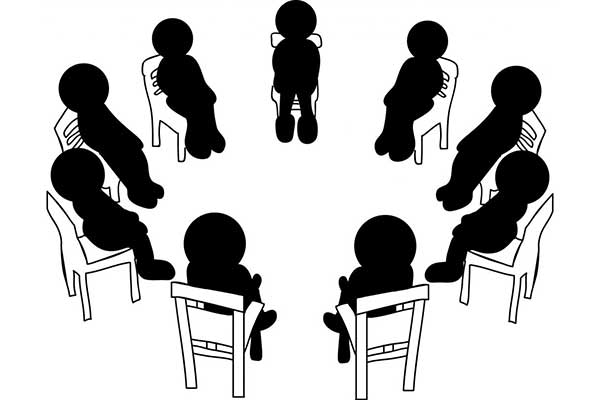The entry in AA’s Daily Reflections for today says, “Our real purpose is to fit ourselves to be of maximum service to God and the people about us.” As I was contemplating this sentence, it struck me that this is one of the most pure and straightforward ways I’ve heard to define holiness: to be made fit to serve God and neighbor.
Many people in our society like to volunteer for community service. It’s very common for college students to go abroad during their breaks to do service projects. But service work can be toxic and harm those who are being served when it’s done by people who are well-intentioned but overzealous and egotistical and think that they’re supposed to save the world. As a recovering white savior, I can testify. That’s why all of us need to be made fit to serve.
Serving without being made fit for it creates a mess. Whether or not we live with recognizable addictions, all of us need to be liberated from the tendency to make our ego satisfaction the top priority in everything we do. It’s almost better to be openly selfish than to serve others as a covert means of elevating and justifying ourselves. Holiness is about being liberated from our egos and all the resentment, fear, and shame we carry around with us so that our hearts can be filled with love instead.
Within the AA world, the way that we’re made fit to serve is to go through the twelve step process in which we surrender to God, take a thorough moral inventory of our character, ask for God to remove our character defects, make amends with the people we’ve hurt, and find a spiritual practice that improves our conscious contact with God.
As a Christian, I process the twelve steps theologically through my Wesleyan faith tradition as a combination of justification and sanctification. Justification means to stop trying to prove myself right and to let Jesus put my sin on his cross so that I can face myself with complete honesty (which corresponds to AA steps 1-5). Sanctification means allowing the Holy Spirit to heal and transform my character so that I can be a vessel of God’s love in the world (steps 6-12).
For me, the recovery process has provided an important confirmation that holiness is a pragmatic venture rather than a legalistic one. That is to say it’s about being transformed for a purpose rather than complying with a set of rules just because. The implication of my pragmatic understanding is that I don’t see the path of holiness as a rigid, arbitrary, one-size-fits-all approach. The path of holiness is whatever works to help me get over myself and become a vessel of God’s greater purpose (recognizing that many things don’t work and that I should start with the testimony of my forbears in scripture and tradition to figure out what works within the specifics of my life).
The most damaging thing that has happened to the concept of holiness in our time is its bastardization in Christianity’s sexuality debate. Every time evangelical Christians weaponize holiness as a code-word for moralizing normality and demonizing otherness, they create a stumbling block that undermines the evangelism and discipleship of those who aren’t in the evangelical in-crowd. I resent the baggage that the word holiness has acquired for the secular college students I’m trying to disciple because selfish culture warriors needed a means of morally validating themselves.
Does holiness have to do with sex? Absolutely. Just like it has to do with every other potential idol in our world like drugs, money, power, or career advancement. Every time we make choices that reinforce our self-centeredness, our love atrophies. The apostle Paul says that we can use our bodies either in ways that either make us more attuned or more aloof to the Holy Spirit (he used the terms “spirit” and “flesh” which required a whole chapter in my book to unpack). Our lifestyle can either make us more or less fit for maximum service to God and other people.
Once we’ve been made fit for service, the service itself becomes a source of our continual transformation into vessels of love when we enter it with the right heart. Even when we don’t have the right heart, God can surprise us and humble us in order to bring about the transformation we so stubbornly resist. The best thing about holiness is that God’s the one who ultimately makes it happen in us.
Check out my book How Jesus Saves the World From Us!
55% of our monthly private funding for our campus ministry comes from blog readers like you with no relation to Tulane or the Louisiana United Methodists. Yesterday someone I didn’t know pledged $50 a month to support us. Inclusive campus ministry in the Deep South is quite rare and support for it from local churches is hard to come by. Please consider becoming part of how God provides for us this year.













